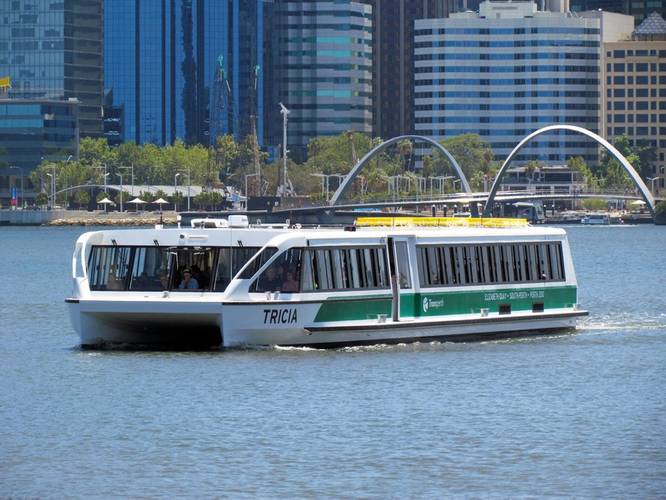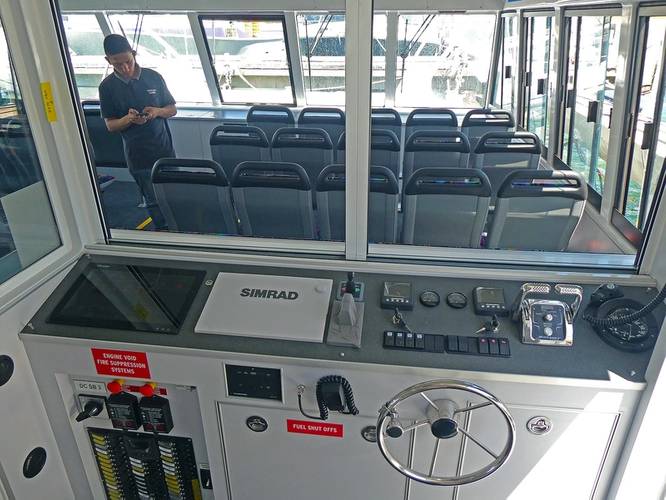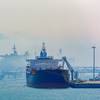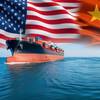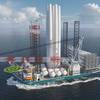New Cat Ferry MV Tricia for Transperth Fleet
A new passenger ferry built by Dongara Marine has been introduced to the public transport system in Perth, Western Australia. MV Tricia - named after Perth Zoo's popular 62-year-old Asian Elephant - is the third ferry in the Transperth fleet, joining two other low-wash catamarans introduced in 1997 and 2009.
Operating across the Swan River between Elizabeth Quay and South Perth, the 23.7-m aluminium catamaran can carry up to 148 passengers and has a loaded top speed in excess of 16 knots.
With two ferries each providing departures every 15 minutes in peak periods, the route carried more than 648,000 passengers in 2018. While currently operating solely on that route, the ferry has been designed and equipped to be suitable for longer journeys should Transperth’s operation expand. This includes being faster and longer than the previous vessels, and the addition of a toilet.
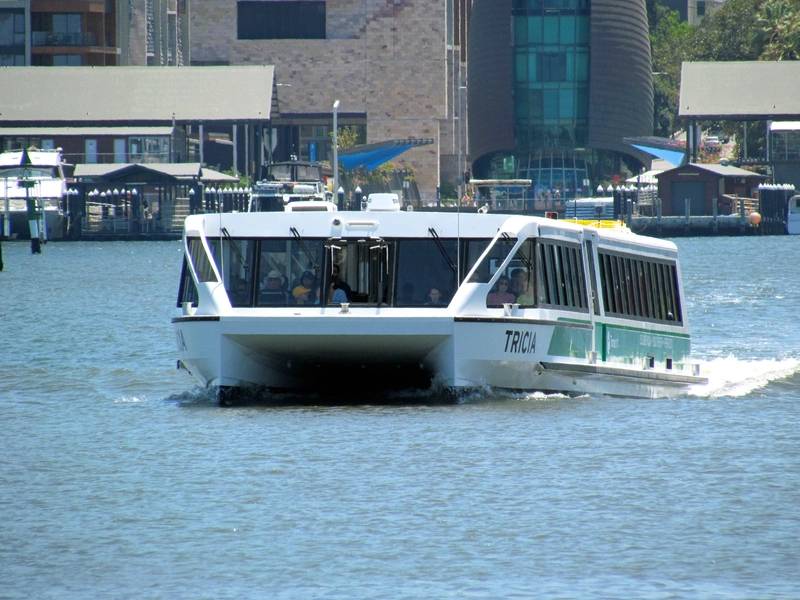 MV Tricia -- named after Perth Zoo's popular 62-year-old Asian Elephant -- is the third ferry in Transperth fleet. Photo: Dongara Marine
MV Tricia -- named after Perth Zoo's popular 62-year-old Asian Elephant -- is the third ferry in Transperth fleet. Photo: Dongara Marine
In addition to meeting disabled access and National Standard for Commercial Vessels (NSCV) Class 1E survey requirements, Dongara Marine’s design partner Southerly Designs developed the catamaran within strict design constraints. For example, operational needs dictated low air draft, compatibility with existing shore infrastructure, and being able to operate with only a Master. The Public Transport Authority further required that the vessel’s appearance and layout was in keeping with the existing ferries.
Dongara Marine also met client requirements and preferences through, for example, enabling the integration of Transperth’s electronic ticketing, public address, and networked CCTV systems; incorporation of Side-Power bow thrusters for enhanced manoeuvring; and fitout selections such as providing seating commonality with its existing ferries, buses, and trains. Roof-mounted panels provide solar power for charging the ferry’s batteries and CCTV system.
Dongara Marine opted to power the ferry with a pair of Cummins QSB6.7 diesel engines at the heavy-duty rating of 184kW, driving Veem propellers via Twin Disc MGX5065 gearboxes.
“Our engine selection enables the ferry to meet its operating speed requirement at a modest percentage of its maximum continuous rating,” Warr explained. “We expect that to have significant benefits for reliability, as well as providing extra speed should that be needed to make up for unexpected delays or on different routes in future.”
MV Tricia achieved a speed of 18.5 knots on trials, easily exceeding the 16-knot contractual requirement.
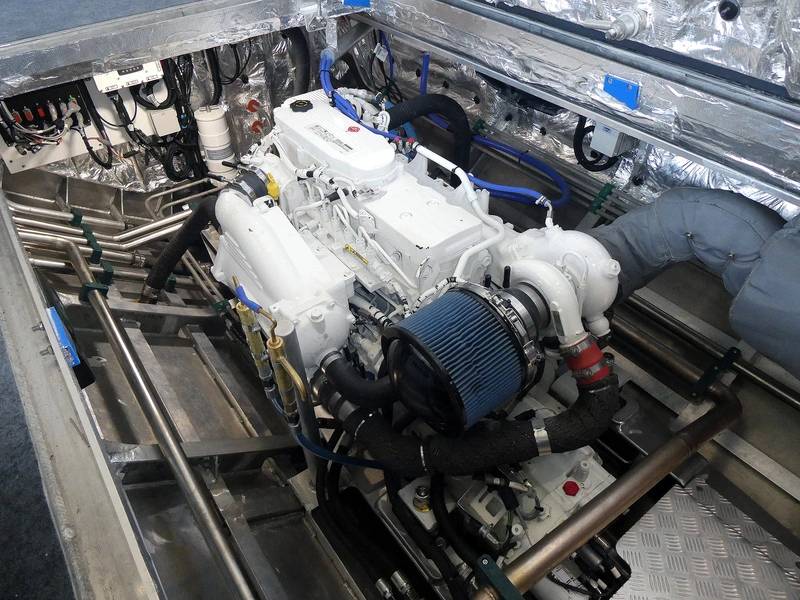 Dongara Marine opted to power the ferry with a pair of Cummins QSB6.7 diesel engines at the heavy duty rating of 184kW, driving Veem propellers via Twin Disc MGX5065 gearboxes. Photo: Dongara Marine
Dongara Marine opted to power the ferry with a pair of Cummins QSB6.7 diesel engines at the heavy duty rating of 184kW, driving Veem propellers via Twin Disc MGX5065 gearboxes. Photo: Dongara Marine
All controls are centralized in a compact wheelhouse on the starboard side, an arrangement that enables the Master to dock the ferry singlehandedly and monitor passenger flows without leaving the control station.
Principal navigation tools include a Simrad NSS touch screen multifunction display that incorporates GPS, electronics charts, and CHIRP-enabled broadband sounder and interfaces with the Simrad Halo pulse compression radar. A Poseidon system from Oceanic Systems enables alarm, monitoring and control of the ferry’s various systems.





